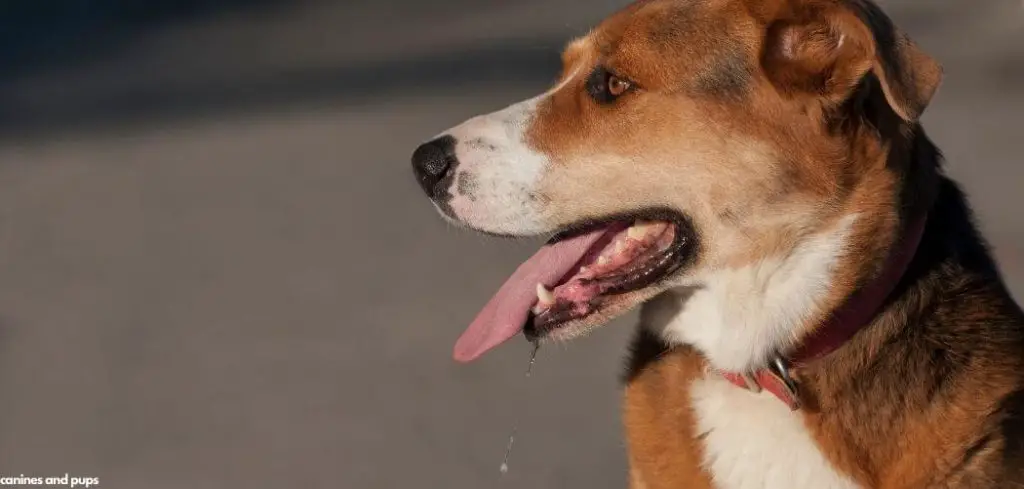When an old dog suddenly refuses food but starts drinking excessive amounts of water, it’s a red flag that shouldn’t be ignored.
Appetite loss paired with increased thirst often points to an underlying health condition that requires attention.
We outline the common causes of not eating and drinking a lot of water in old dogs, what you can do at home, and when to seek veterinary help.
Old Dog Not Eating and Drinking a Lot of Water — Why It Happens
An old dog that stops eating but drinks more water than usual is often experiencing an internal health issue. This combination may point to kidney disease, diabetes, liver problems, infections, or certain medications. Sometimes it may be linked to heat, dehydration, or even stress, but in older dogs, serious medical conditions are the most likely culprits.
Because aging dogs are more vulnerable, quick action is essential to prevent further decline.

Old Dog Not Eating and Drinking a Lot of Water: Common Causes
Kidney Disease
Kidney disease is one of the most common reasons for increased thirst in senior dogs. As the kidneys struggle to filter waste, toxins build up in the blood, causing nausea, loss of appetite, and vomiting.
Dog owners often notice their old dog refusing food but draining the water bowl repeatedly. Other signs include weight loss, bad breath with a chemical odor, and lethargy.
Kidney disease is progressive and requires veterinary management. Left untreated, it can quickly worsen and become life-threatening.
Read more: Old Dog Not Eating and Vomiting (What it could mean)
Diabetes
Diabetes is another frequent culprit behind excessive water intake in old dogs. When blood sugar levels are uncontrolled, the body tries to flush out excess glucose through urine. This leads to dehydration, which in turn makes dogs drink more water.
Unfortunately, diabetes also causes appetite changes. Some dogs stop eating altogether, especially if they feel nauseous or develop secondary infections.
Other symptoms include cloudy eyes (cataracts), weight loss despite eating normally before appetite loss, and increased urination.
Diabetes is serious but manageable with insulin therapy and diet adjustments.
Liver Disease
The liver plays a major role in digestion and detoxification. When it becomes compromised due to disease, toxins build up in the bloodstream. This can cause nausea, disinterest in food, and increased thirst.
Dogs with liver disease may also show jaundice (yellowing of the gums, eyes, or skin), vomiting, diarrhea, and weakness.
Some dog owners sometimes dismiss early signs, thinking their old dog is just slowing down, but untreated liver problems can progress rapidly.
Infections (Urinary Tract or Systemic)
Infections—particularly urinary tract infections (UTIs) or more widespread bacterial infections—can lead to appetite loss and excessive drinking.
A dog with a UTI may drink more to try to flush bacteria from the system, while systemic infections can cause fever, fatigue, and food refusal. Left untreated, infections can spread to vital organs, making them especially dangerous in senior dogs.
Cushing’s Disease
Cushing’s disease occurs when the adrenal glands produce too much cortisol. This condition is more common in older dogs and often presents with increased thirst and urination.
As the disease progresses, many dogs lose interest in food due to nausea or abdominal discomfort. Other signs include a pot-bellied appearance, thinning fur, panting, and muscle weakness.
Cushing’s is chronic but can be managed with medications once properly diagnosed.
Certain Medications
Some medications prescribed for older dogs—especially steroids—can cause side effects such as increased thirst and reduced appetite.
If your dog recently started a new medication and you notice these symptoms, consult your veterinarian. Do not stop medications abruptly without guidance, as this can be harmful.
Read more: Old Dog Not Eating and Has Diarrhea (Causes to watch for)
What to Do If Your Old Dog Is Not Eating and Drinking a Lot of Water
If your old dog suddenly refuses food but drinks excessively, first ensure they are comfortable and have access to fresh, clean water. Never restrict water intake, as dehydration can develop quickly.
You can try offering bland, easy-to-digest foods such as boiled chicken and rice, low-sodium broth, or prescription diets designed for sensitive stomachs. Sometimes warming food or adding moisture can tempt an old dog to eat.
Monitor for additional symptoms like vomiting, diarrhea, weight loss, or changes in urination. These can help your vet determine the underlying cause.
If your dog is stable and still drinking, you can support them at home short-term, but veterinary evaluation is necessary to address the root problem. Early diagnosis can often make a big difference in quality of life.
When to Call or Visit Your Vet
You should call or visit your vet promptly if your old dog:
Has not eaten for more than 24 hours.
Is drinking excessively but still seems dehydrated.
Shows signs of vomiting, diarrhea, or weight loss.
Appears weak, disoriented, or unusually tired.
Develops yellow gums, cloudy eyes, or labored breathing.
Because this symptom combination is often linked to serious illnesses like kidney failure, diabetes, or liver disease, professional care is essential. Your vet will likely run bloodwork, urine tests, and possibly imaging to pinpoint the cause.
The sooner you act, the better your dog’s chances for effective treatment and comfort.
Read more: Old Dog Not Eating (Why it happens)
Key Takeaway
When an old dog is not eating but drinking a lot of water, it’s usually more than just a picky appetite or aging slowdown. It often signals an underlying medical problem like kidney disease, diabetes, or liver dysfunction.
At home, you can encourage eating with bland diets and hydration support, but veterinary care is crucial for diagnosis and treatment.
Staying alert to changes in your senior dog’s habits—and seeking help quickly—gives them the best chance at comfort, stability, and a longer, healthier life.
